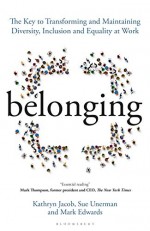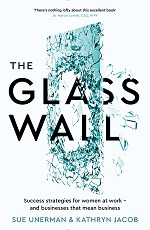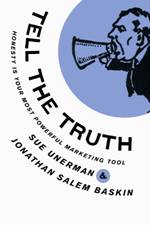 “A widespread promiscuous devotion to the untrue”
“A widespread promiscuous devotion to the untrue”
This is how best-selling writer Kurt Anderson describes post truth Trump’s America. In his recent best-selling book Fantasyland he argues that regarding facts as optional is deep rooted and centuries old in his homeland.
His argument runs like this: The founding fathers fled an England that was too religiously tolerant for their beliefs and sought a new land where nobody would mock them for their delusions and dreams. Creating new truths began in the 17th century and has never stopped. Its no co-incidence, according to Anderson, that America produced Disneyland or that creationism is still popular. Americans are great at fantasy. Facts, he claims, are too often perceived as merely another version of the truth. “America was the dreamworld creation of fantasist, some religious and some out to get rich quick, all with freakish appetite for the amazing.” He is fearful of the consequences of this for the world. A world where opinion is as valid as hard evidence. Here’s one of Anderson’s more recent examples of this: ‘“Do you think that talking about millions of illegal votes is dangerous to this country without presenting the evidence? the anchor of ABC World News Tonight asked President Trump. “No,” he replied, “not at all! Not at all – because many people feel the same way that I do.”’
Are we, in the ad industry, ever in danger of confusing hard evidence and beliefs?
At 2018’s IPA Effectiveness Week conference Libby Child presented research into marketing effectiveness culture across the industry where over half the respondents rated the abilities of their organisations at 6 or less (out of 10). Furthermore prevailing ‘Marketing Effectiveness Culture’ is short term in its focus. It is not yet the norm for it to be aligned across the whole company or for formal kpis to be shared across the board. So sometimes budgets are spent against the more easily judged short term rather than in the long term in terms of brand health and for a sustainable business model.
There was a trend a few years ago about “the wisdom of the crowd”. Surely if most people around you believed something then that would be better than the opinion of an elite group of experts? This can be seen as part of a “Fantasyland” continuum; where someone hears what they would prefer to believe, and then is served social media feeds which reassuringly echo rather than challenge their views.
Every aspect of a comms plan must have a rationale, backed by evidence. That evidence must be substantive and independent. To make any decision because that’s where other brands are spending or on the basis of media owner information that is not third party verified may be entering the Fantasyland delusion.
There is always room for instinct, for gut feel and for making a decision because of belief in the potential of a media idea that is unproven yet. But this should be done in the conscious knowledge that it is a valid test and experiment with proper accountable measurements.
Fantasyland can be dangerous. Anderson calls out some opinion formers as “Squishies, people intellectually or temperamentally disinclined to tell people they’re full of shit when they are, who have lost their stomach for the fight against the multiplying and empowered Believers.”
The IPA Effectiveness movement stands out against the Squishies. Now a global initiative it is dedicated to broadening the bank of knowledge from more brands and more disciplines. As Convenor of the 2020 awards I’m hoping that more agencies than ever this year can find the time to enter to ensure the triumph of evidence based marketing.



Have you got a “Barney” ?
Monday, June 24th, 2019If you’re a fan of “How I met your mother”, you’ll recognise Barney’s catch phrase. As self-appointed wingman to friend Ted, he essentially chats up for him a series of women for dates.
Have you got a Barney in your life? For Ted, characterised as more shy and more self-effacing, Barney plays a crucial role in getting him connected. He’s Ted’s bro.
A wingman or woman can make a massive difference to your career (as well as your love life, which is out of the remit of this blog). When you hit a career blockage, have a bad meeting or sink beneath pressure, your wing-person can help you to regroup and move on.
They’ll be there for you, and cheer you up. And if you’re really lucky they’ll tell you some home truths about yourself.
In fact, if they don’t do this, they’re not actually doing their job properly. A work buddy is one thing. The person who you moan to about your boss being short with you, or who makes you a cup of tea when you’re flagging. The buddy will comfort you when you’re down, commiserate when you didn’t get a promotion, chat with you when you’re bored, cover for you when you’re late.
This is not a wing person. The wing person – or WP – plays a different role in your career. They will make connections for you and talk about you when you’re not there. They will create opportunities for you. They will be thrilled at your success, even if it sometimes is better than their own. A great WP thinks about you when you’re not around.
They push you out of your comfort zone.
They tell you what you got wrong.
They make suggestions about how you should change that they know you won’t want to hear.
They keep on at you about those changes, even if you tell them not to, because they care as much about your career potential as you do, and honestly, in my personal experience, sometimes they care more.
Listening to them and then acting on it is essential. It’s a big part of having a growth mindset, and that’s the mindset you need to succeed.
They are not just your cheer-leader, in proven fact they are much more important than this.
In an interesting experiment, Professor Serena Chen of the University of California, together with Juliana Breines from the University of Rhodes Island, worked with participants in 3 groups all of whom had been asked to name their biggest weakness. One set were asked to write themselves a letter talking about their weakness from a “compassionate and understanding” perspective. Another set were asked to write in terms of boosting their self-esteem – to focus on validating themselves rather than on that weakness. The third group were the control, and weren’t asked to do anything. Participants in the weaknesses seen with compassion group showed much more of a growth mindset, and were much more likely to agree that with hard work they could change than either of the other two sets. A follow up experiment showed that behaviour change was much more likely from people who experienced compassionate but clear understanding about what they’d got wrong, than from those who had been given unconditional approval.
Here’s how wingperson differs then from a buddy or even a cheerleader. They’ll point out your mistakes with kindness and compassion, and won’t let you get away with being stuck. Self-esteem by HBR’s analysis is over-rated. You need a wingman to make sure that you are really working on your weaknesses not just glossing over them. If you haven’t got one, find one. And as Barney also says, it never hurts to Suit Up.
Posted in MediaComment | No Comments »